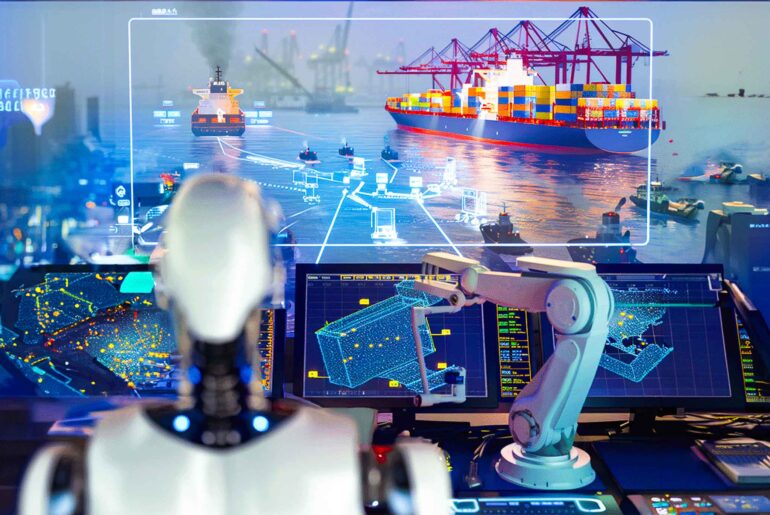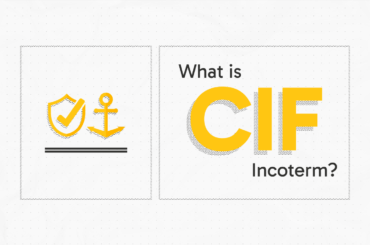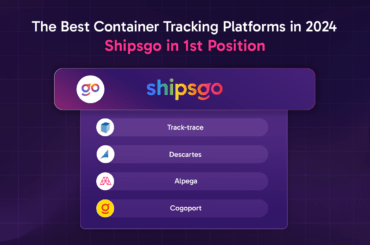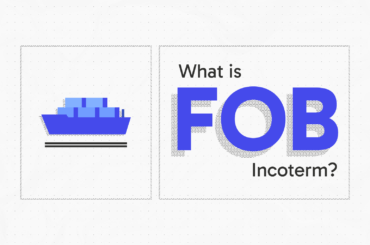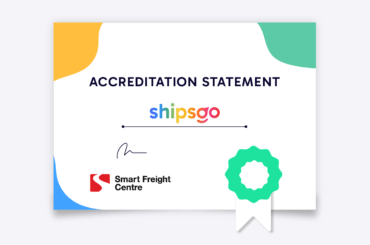The management of supply chains faces new challenges every day. Certainly, one of the most striking issues at this point is how the future of the container transportation sector will be shaped and which trends will affect the industry.
Today, many areas are changing, and new regions are emerging. For about 1.5 years, a reality like AI has existed. It would be interesting if these issues did not affect the container transportation industry.
However, an organization has been using artificial intelligence technology and digitalization in the container transportation sector for a long time. The Shipsgo Container Tracking system. It can instantly give you a lot of information about your shipment and support it with notifications. In sudden situations, the autonomous system will take action with its expert team and protect you from harmful situations.
You can check out our tutorial on this subject if you want more information about Shipsgo Container Tracking.
5 Key Trends Shaping the Future of Supply Chains
1- More Freight Capacity
According to BIMCO (an international shipping association), global container volumes are estimated to increase by 4.8% in 2024, while ocean fleets will increase by 7.8%. Air freight forwarding is expected to grow in 2024.
Due to increased competition, customer loyalty could be affected, causing shipping companies to tighten their belts to compete.
2- Digital Transformation Increasing Efficiency
Artificial Intelligence, Machine Learning, and the Internet of Things are powering Digital Transformation in Supply Chains. They are moving beyond buzzwords and aiming to fundamentally change operational dynamics. The main goal is to improve the time and labor curve and increase profitability and future of container transportation.
Artificial intelligence and machine learning will enhance predictive analytics, enabling smarter decisions by analyzing massive data sets. More effective use of statistical data may lead to a rethinking of strategies. IoT technology will offer unprecedented visibility into supply chains, enabling real-time tracking.
With warehouse management and transportation process management, issues such as Detention and Demurrage can also become more accessible to overcome. This digital transition is vital to achieving sustainability goals while remaining agile.

3- Fleets Embracing Sustainability
Carbon emissions and sustainability largely depend on your fuel sources. Gray and Brown Methanol Types are no different from traditional fuel types.
Carbon emissions do not change significantly when green and blue methanol is not used. It is important to use sustainable sources. This can reduce carbon emissions. At Shipsgo, we understand the importance of a sustainable world and are working towards it. You can review the Shipsgo Carbon Offset page in more detail…
4- Increased Mergers and Acquisition
In the container shipping industry, mergers and acquisitions have increased significantly since the pandemic. This trend will likely continue in 2024, as smaller and independent shipping companies will merge to tackle challenging marketing conditions.
Established carriers may use this opportunity for acquisitions. In addition, the largest known transportation companies may expand their operational network by acquiring smaller carriers this year.
5- Blockchain for Supply Chain Visibility and Security
Blockchain technology is drawing attention to the future of the container transportation industry. Blockchain technology could gain popularity by increasing security and transparency in supply chains. Blockchain’s decentralized ledger offers a revolutionary way to track and exchange data, recording transactions in a virtually undetectable way.
Blockchain technology can be a valuable tool in preventing counterfeit goods and ensuring compliance.
The unique numbers carried by each chain can close security gaps in the matching and storage of goods. This would lead to more secure and efficient supply chain operations. Imagine tracing a defective product to its manufacturer and knowing the exact material and batch used. Wouldn’t that be great?
Blockchain technology and tokenization will continue to impact the container shipping industry as they have in many other areas.
